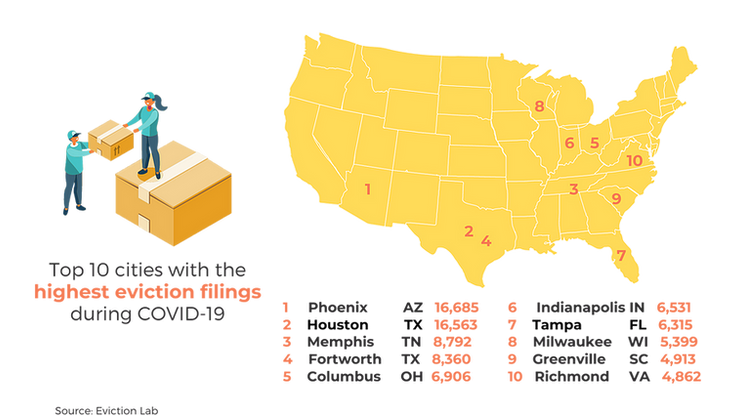MSP'S 4TH Annual Collaborative: Eviction Prediction
Join us for Mustard Seed Project's 4th Annual Collaborative "Eviction Prediction"
This collaborative experience will focus on the ongoing and growing renter’s crisis while also highlighting the accomplishments and future goals of MSP. We are beyond excited to learn from our guest speaker this year and further develop our homeless outreach skills with you all during proactive breakout room discussions. This event is open to to the public and we encourage you all to spread the word and share our passion for addressing chronic homelessness during such a trivial time in history.
COVID-19 – In addition to being a health crisis that affects millions worldwide, this pandemic encompasses the worst global economic crisis since the Great Depression of the 1930s. With disruptions to businesses and means of income, COVID-19 has negatively impacted millions of people. Previous eviction moratoriums started in Sept. 2020 and ended in July 2021, with a recent extension by the CDC to Oct. 3rd. In addition, $46 billion of federal aid has been allocated to rental relief. However, since mid-March of 2020, there have been 488,069 evictions in the 6 states and 32 major cities that were tracked.
The reason for this high number is that the order for rent moratorium creates financial burdens for landlords, putting their property at risk to wealthy investors. Other barriers to financial aid are people not knowing they can reapply, access to online forms, photo identification.

The homeless population is among the most vulnerable populations during this pandemic. Due to lack of sanitation and access to showers, in addition to the physical decline due to constant exposure to the environment, individuals in homelessness are at a higher risk of mortality to COVID-19. Vaccination rates among the homeless populations are still low. According to the National Health Care for the Homeless Council, the vaccination rate is about 20-30 percent. Nationwide, more than 375,000 people in homeless centers have tested positive for Covid-19. This is only in homeless centers and not comprehensive of the overall actual number. The low rate of vaccines could be attributable to many things that have always acted as barriers to access: Lack of transportation, information, language barrier, etc. People are also hesitant because they’re worried about not being able to fend for themselves when they’re under the side effects of the vaccine. The Renter’s Crisis will put extra burdens on the homeless population. An increasing rate of eviction will increase the rate of homelessness will, taking resources away from those who are currently already homeless. The BIPOC population will be disproportionately affected, as the top ten cities with the highest eviction rates are also the cities whose African-American population makes up the majority of homelessness.
All Our Best,
Mustard Seed Project Team


